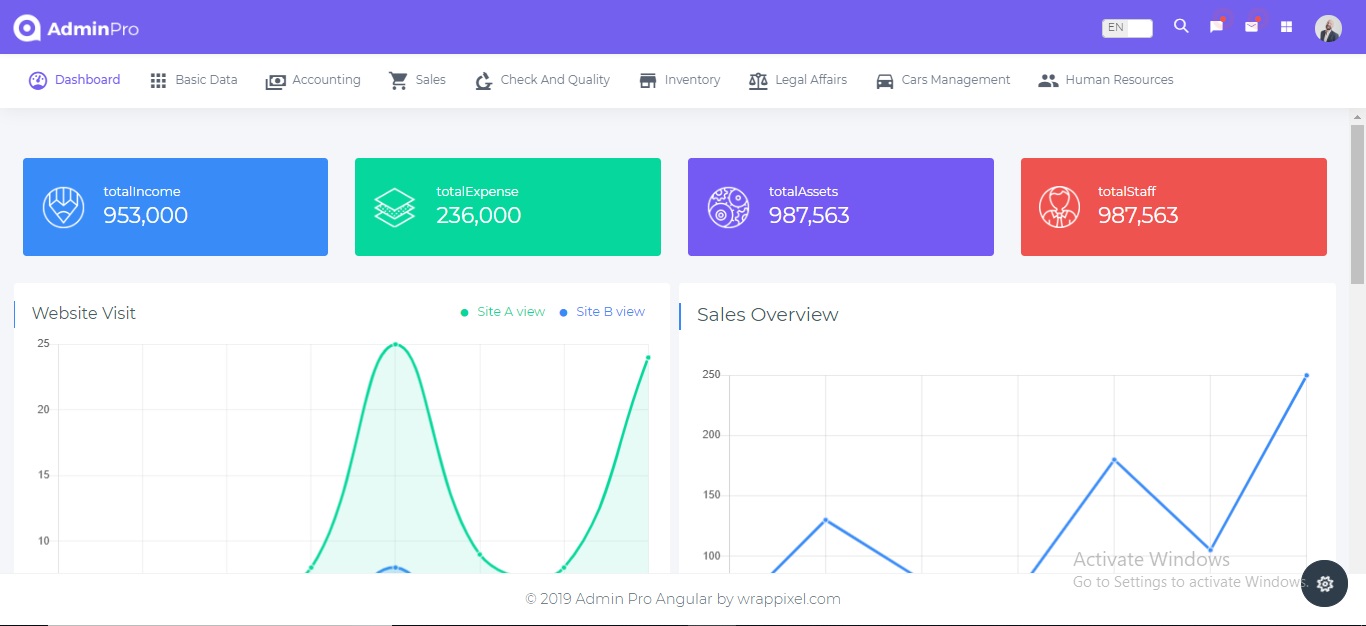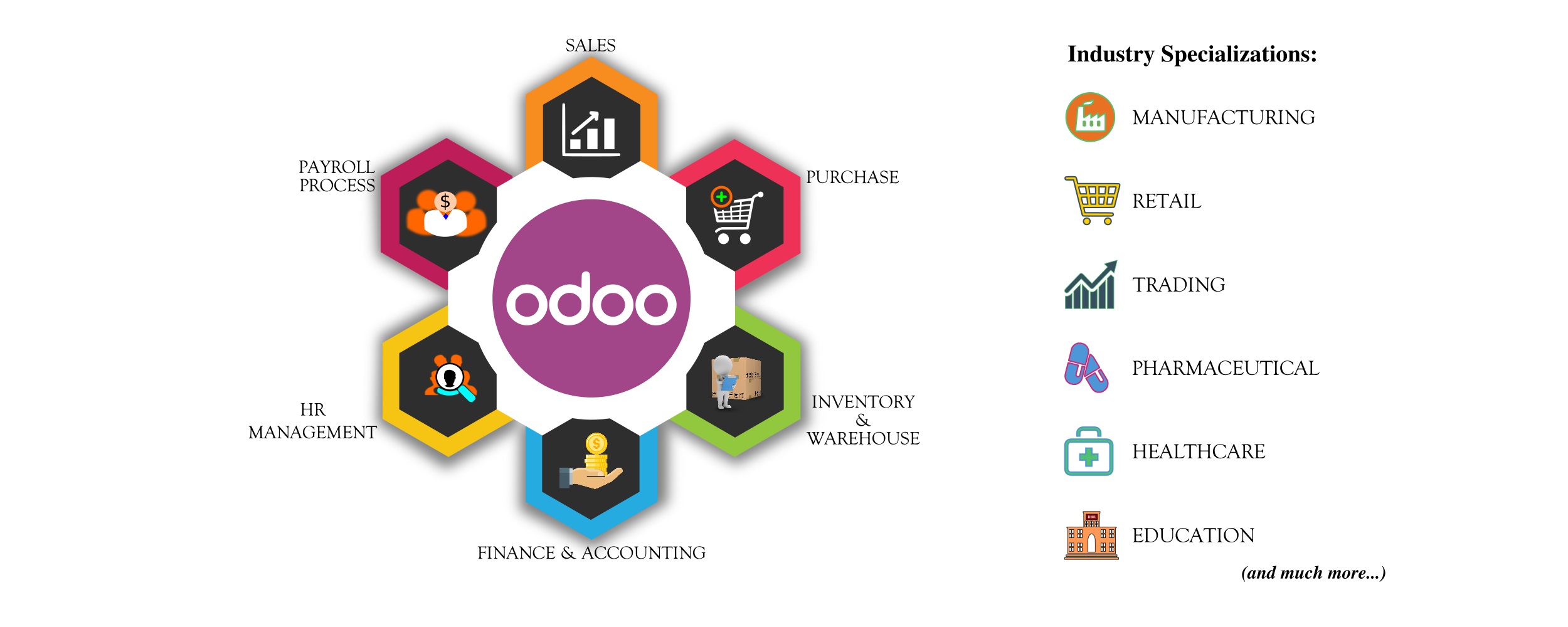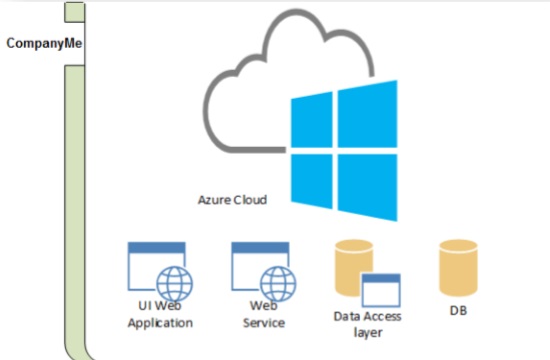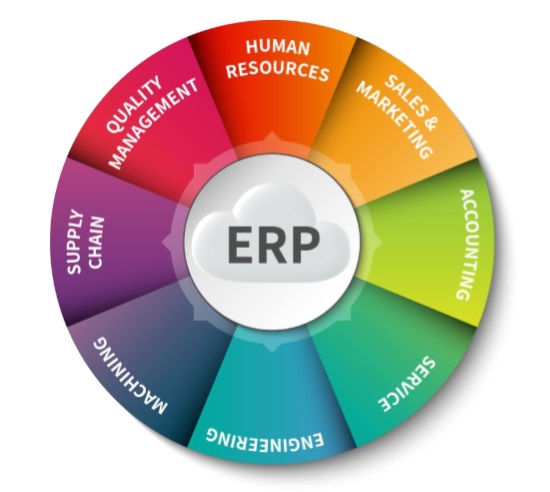CompanyMe ERP System
What's ERP System
"ERP" stands for enterprise resource planning. It refers to a suite of software that organizations use to manage day-to-day business activities, such as accounting, Human resources, Inventory, Legal Affairs, Sales, POS and more operations. A complete ERP suite also includes enterprise performance management, software that helps to plan, budget, predict, and report on an organization’s financial results.
ERP systems tie together and define a plethora of business processes and enable the flow of data between them. By collecting an organization’s shared transactional data from multiple sources.
Today, ERP systems are critical for managing thousands of businesses of all sizes and
in all industries. To these companies, ERP is as indispensable as the electricity that
keeps the lights on.
For more details:Companyme ERP system



ERP System Technical Technologies
This system is based on cloud so it's more easy to use everywhere and it adds more security to your data and we create this system by the best technology like:
- HTML5
- Angular 7
- Mongo DB
- Android
- service oriented architecture
Web Application Infrastructure High Level Design
The following diagram illustrates the high-level design for Companyme Web Application Infrastructure according to Companyme business requirements that will cover the current and future needs as following:

Features of ERP System:

Permissions Module is Permissions module manage user activity, limitation across all the application including offer management the possibility to define different levels of access to information in the application by define specific groups of users.
Accounting Module Financial accounting module of an ERP package provides companywide
control and integration of financial information.
This module provides the ability to centrally track financial accounting data within a framework of multiple companies,
languages and currencies.
Accounting module including (Account tree, Cost Center, Journals, Catch instrument and Reports).
Basic Data Module a general supporter module for all modules in the system and it used in add any adjustments for all module based on our need.
POS "Point Of Sale Module" is designed to provide a retail POS system for filling and shipping orders according to inventory availability. It performs an extremely valuable function by providing a direct link with the Accounts Receivable and Inventory modules. On-line query of any account or data item field can be made to obtain information on the status of an order and whether a shipment is on hand, back ordered.
Sales Module ERP Sales module is the most important and essential function for the existence of an organization. Sales handle all the activities for domestic and export sales of an organization. The customer and product database is maintained. Capturing enquiries, order placement, order scheduling and then dispatching and invoicing form the broad steps of the sales cycle. Stock transfer between warehouses is also covered. Besides all this, important analysis reports are provided to guide decision making and strategy planning. Export documents are also generated.
Legal Affairs Module Legal ERP with billing, clients, accounting, time records and documents – a single platform for all critical functions. An integrated solution to manage every step of a case/matter life cycle from CASE to CASH. With unmatched efficiency and multi-tasking abilities.
Inventory Module short for enterprise resource planning inventory management, refers to an integrated approach to business planning and operations. With an ERP inventory management system, businesses can manage all their finances, logistics, operations, and inventory in one place. There is many advantages like: Increased efficiency, Cost savings, Supply chain transparency, accurate data collection and reporting and Enables business expansion.
Bid Module is tools you need to register an RFQ and break it down into a complete set of customer requirements. The BPM CRM module then categorizes those requirements and lets you view them from several perspectives. This gives you a better understanding of the RFQ and its components.
Check and Quality Module Quality management includes customerdriven quality,
top management leadership and commitment, continuous improvement, fast response, actions based on facts,
employee participation and above all a quality management culture.
Each part of the company is involved in total quality, operating as a customer or supplier to one another.
For more details:Companyme ERP system
